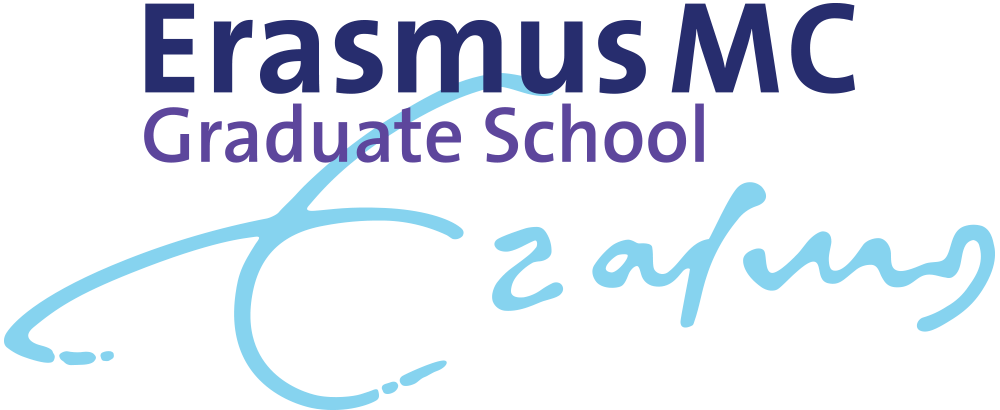Research Themes
- Intensive Care
- Oral and Maxillofacial Surgery
- Biostatistics
- Medical Psychology and Psychotherapy (MPP)
- Health Decision Sciences
- Public Health
- Genetic Epidemiology
- Clinical Epidemiology
- Medical Informatics
- Musculoskeletal Science
- Rehabilitation Medicine
- Surgical Research
- Gastroenterology & Hepatology
- Transplantation Medicine
- Urology
- Periconception and Prenatal Medicine, Obstetrics and Reproduction
- Pediatric Research
- Gynaecology and Gynaecologic Oncology
- Medical Oncology
- Haemato-Oncology
- Cardiovascular research
- Endocrinology, Neuro-Endocrine Immunology, and Clinical and Medical Immunology
- Imaging Studies
Plastic, Reconstructive and Handsurgery
 Theme 1: Hand Surgery and Hand Rehabilitation
Theme 1: Hand Surgery and Hand Rehabilitation
Ruud Selles MSc, PhD, Christianne van Nieuwenhoven MD, PhD
Shaking hands, writing, typing, eating, driving a car, inserting a key ……these are normal daily live activities. We perform them without thinking. Unfortunately every year thousands of babies, children and adults are confronted with a variety of disorders preventing normal use of their hands and wrists. Diseases can be present at birth or acquired either by trauma or a degenerative disease. Suddenly patients are not independent anymore as they cannot rely on the normal use of their hands. For this reason, hand, wrist and nerve surgery is such an important part of the specialty of Plastic and Reconstructive and Hand Surgery.
Within the research theme Hand Surgery and Hand Rehabilitation, our research is combined with the department of Rehabilitation.
Medicine and focused around four main themes:
- Comparative effectiveness of surgical and non-surgical treatment in hand disorders. We perform both randomized controlled trials and have access to the largest dataset worldwide with baseline characteristics and outcome measurements of treated patients. With modern statistical techniques such as propensity score matching and mixed models, we use these data to evaluate effectiveness of treatment.
- Development of predictive models for various treatments of hand disorders. For instance, a model to predict whether patients would achieve a complete contracture reduction after the treatment for Dupuytren’s disease.
- Assessment and utilization of psychological patient characteristics and social context on (chronic) hand disorders and the treatment outcome. For instance, to what extent signs of depression influence the results of surgery in patients with CMC1 osteoarthritis.
- Assess the influence of hand disorders and the treatment of these disorders on work and return to work. Extension within this theme would be, for example, the burden of hand diseases on society in terms of costs, due to missing work.
- Assess the role of genetic and embryologic influence on congenital upper limb and hand differences. For instance, what is the genetic, epigenetic or embryological cause of increasing severity of polysyndactyly over generations.
These themes are applied within a range of patient groups, such as congenital hand differences and chronic disorders such as CMC1 osteoarthritis and Dupuytren’s disease. Students will perform analyses on data collected in an advanced routine outcome measurement system used to optimize clinical care in hand disorders at Erasmus MC and with our partner Xpert Clinic. Often, our projects are translational, combining research tools and clinical expertise from a number of different departments and specialties. The main aim would be submit the manuscript for publication in international acclaimed journals.
 Theme 2: Craniofacial anomalies and their treatment
Theme 2: Craniofacial anomalies and their treatment
Prof. dr. I.M.J. Mathijssen, MD PhD
In the craniofacial center of the Erasmus MC we treat most patients born in the Netherlands with a craniofacial disorders, such as craniosynostosis and rare facial clefts. The problems that these patients encounter range from functional problems such as elevated intracranial pressure, brain anomalies such as hydrocephalus, Chiari I malformation, and white matter disorders, breathing disorders, and hearing and vision loss. On the other hand, living with a different face and being judged on that daily by the outside world is an enormous challenge. These patients stay within our team from birth to far beyond adulthood.
Our research line on craniofacial anomalies ranges from discovering new genetic mutations that cause these congenital disorders, studying the various brain anomalies and their treatment, detecting the risk factors for elevated intracranial pressure, psychosocial functioning, to studying the outcomes of various surgical techniques. Furthermore, we also study the brain morphology using automated analyses of MRI’s, in collaboration with the radiology department of the Erasmus MC and Delft University of Technology.
All the departments that are represented in the craniofacial team participate in this research line: Plastic and Reconstructive Surgery, Neurosurgery, Maxillofacial Surgery, Orthodontics, Clinical Genetics, ENT, Ophthalmology, Radiology, Pediatrics, and Psychology. Our team is leading the European network on craniofacial malformations, and through this network several options for joined research are available.
Visit our website: www.ern-cranio.eu
 Theme 3: Virtual Reality & Augmented Reality in Oncological Reconstructive Surgery
Theme 3: Virtual Reality & Augmented Reality in Oncological Reconstructive Surgery
Principal Investigator: Dr. Eveline M.L. Corten, plastic surgeon, MD, PhD (e.corten@erasmusmc.nl)
As plastic surgeons we are specialized in reconstructive surgery following oncological disease. We aim to restore impaired form and/or function to improve quality of life. At the Erasmus MC the focus of the reconstructive plastic surgery group is on facial reconstruction, head and neck reconstruction and breast reconstruction. It is an ongoing challenge to search for innovative ways to optimize our outcomes.
Modern 3D ‘immersive’ technologies like Virtual Reality (VR) & Augmented Reality (AR) have many applications in the medical field. To date little research has been done on the potential beneficial effect of these technologies on patients (patient experience and quality of life), doctors (technical accuracy of the procedure and outcomes) and cost-effectiveness.
This research line focuses around three themes:
- Preoperative planning
- 3D visualization of blood vessels in existing CTAngiograms for autologous breast reconstruction
- Preoperative patient experience
- Personalized 3D visualizations of the anticipated surgical result in facial reconstruction
- Medical education
- Training of visuospatial ability in (technical) medical students
All studies are performed in close collaboration with other departments within the Erasmus MC (Biomedical Imaging Group, Maxillofacial Surgery, Neurosurgery, Internal Medicine, Psychology) and the Convergence Health & Technology (Delft University of Technology, Erasmus MC).
The research master student will be part of the XR (Extended Reality) research group and will participate in the studies mentioned above. These studies offer the experience of coordinating and participating in multicenter studies, as well as collecting and interpreting data. At the end of the research project a scientific article will be written by the student and submitted to a peer-reviewed medical journal. The student will work under the guidance and supervision of Eveline Corten as personal tutor.
Visit our website: www.erasmusmc.nl/nl-nl/patientenzorg/specialismen/plastische-en-reconstructieve-chirurgie-volwassenen & www.erasmusmc.nl/en/research/researchers/corten-eveline
 Theme 4: Optimizing Outcomes following Oncological Reconstructive Surgery
Theme 4: Optimizing Outcomes following Oncological Reconstructive Surgery
Prof. Dr. M.A.M. Mureau, MD, PhD
Despite improvements in non-surgical treatment of various malignancies, such as chemotherapy, immunotherapy, hormonal therapy and radiation therapy, for most tumors surgical resection still is necessary, often with mutilating consequences. The field of oncological reconstructive surgery aims to restore appearance and function of the affected body part by using healthy tissues from other sites of the body. The consequences of tumor resection for the quality of life of patients after for example surgical treatment of breast cancer, head & neck cancer or facial skin cancer may be significant. Therefore, the primary goal of reconstructive surgery is to minimize these negative consequences of cancer surgery for the quality of life of patients by each time achieving an optimal reconstruction according to the individual needs and values of the patient. It is therefore imperative to know what the outcomes of different reconstructive techniques are, including predictors of good and poor outcomes, cost-effectiveness, and patient-reported outcomes to further improve the quality of oncological reconstructive surgery and to optimize patient information and counseling for shared decision-making.
For breast reconstruction breast implants are often indispensable. Since their introduction in the 1960s, the safety of breast implants has been questioned regularly, specifically after it became apparent they are associated with a rare malignant lymphoma (BIA-ALCL). Recently, a growing number of women with breast implants have reported non-specific health complaints which has caused a debate whether there may be a causal relationship. However, relatively little is known about the long term performance and safety of breast implants. Therefore, in 2015 the Dutch Breast Implant Registry was started making longitudinal monitoring of breast implants possible.
The research on outcomes following oncological reconstructive surgery focuses on four themes:
- Assessing and optimizing (patient-reported) outcomes following breast, head & neck and facial reconstruction.
- Improving the uptake and quality of breast reconstructions in the Netherlands.
- Monitoring and improving the quality of breast implant surgery in the Netherlands.
- Increasing our knowledge on breast implant performance and safety.
There exists a multidisciplinary research collaboration with various departments within the Erasmus MC and other institutions, nationally as well as internationally.
Visit our websites: https://www.erasmusmc.nl/nl-nl/patientenzorg/specialismen/plastische-en-reconstructieve-chirurgie-volwassenen, https://www.erasmusmc.nl/en/research/researchers/mureau-marc, https://dica.nl/dbir/onderzoek
 Theme 5: Robotic digital microscopy and Surgical process modelling (Micro)surgery Redefined (DiMiRoS)
Theme 5: Robotic digital microscopy and Surgical process modelling (Micro)surgery Redefined (DiMiRoS)
Principal Investigators: D. Vasilic, Ph.D., Department of Plastic Reconstructive and Hand Surgery, ErasmusMC
Co- investigators: Prof. C.M.F. Dirven, M.D., Ph.D., Department of Neurosurgery, ErasmusMC; Prof. J. Dankelman, Ph.D. ,Department of Biomechanical Engineering, Delft
In (micro)surgical treatments, the surgical outcome depends on several factors. To improve on surgical accuracy and efficiency, there is a need to enhance the visualization of surgical details. In order to prevent complication, better insight in the surgical process is needed. Various parameters and strings of complex decision making are involved in performing a successful surgery. Surgeon’s experience, proper equipment, the right information for decision making, are some of the key parameters in performing a successful surgery. Hence, to safely perform a highly delicate oncological neurosurgery or restorative microsurgery, it is necessary to introduce innovative, practical and efficient solutions. The goal of DiMIRoS is to increase accuracy and efficiency of surgical execution while minimizing associated complications.
To achieve our goal, the objective of DiMiRoS is to:
- optimize robotic digital microscopy with its enhanced (3D) visualization, better ergonomics, and the possibility to provide feedback during task performance, and
- improve the decision making process using surgical process modeling and AI technologies.
To achieve these goals, we are departing from conventional microscopy, introducing and improving upon digital microscopy and digital guidance based on a surgical platform built on a suitable AI-model.
Uniquely and unlike other studies in robotic surgery that focus on improving a performance of a single agent like surgeon (human) or digital robotic microscope (machine), this study gravitates around symbiotic relationship between humans and machine. This approach is original and requires implementation of novel AI-modalities and surgical process modelling, which in turn will reorient the use of AI for surgical purposes and significantly impact the fast-evolving branch of digital health.
Through high-quality images displayed on a monitor, robotic digital microscopy also offers improved “surgical” ergonomics. Better ergonomics significantly impacts surgeon’s focus, endurance, and overall health, resulting in better outcome for patients and prolonged and productive professional life of a surgeon.

